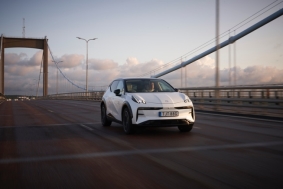Last year some 45,000 migrants crossed the English Channel and landed on the southern coast of the country, in search of better life chances. Despite the government’s promises and rhetoric of taking control of it borders, the last two years have seen a steady increase in the number of migrants and a corresponding spiralling number of asylum cases needing to be processed. Brexit was supposed to tackle this. The Rwanda plan was supposed to address this. The latest government strategy is the arrival of the barge. This large vessel will be able to accommodate about 500 people. The central concern however, is whether this latest strategy will significantly help to reduce the number of migrants crossing the Channel and, as the Prime Minister says. ‘stop the boats’, or simply be ignored by those seeking to enter the country.
Britain’s difficulties in significantly reducing the number of illegal migrants crossing the Channel, and simultaneously processing the back log of asylum seekers appear to be worsening. The government claims it needs to prioritise strategies that limit the pull factors attracting asylum seekers to Britain. The government is trying to make the crossing of the channel less attractive, because there are more than 50,000 people currently living in hotels after they made the final part of their journey in small dinghies across the English Channel. For the migrants, Britain seems like a soft touch. If they can get into this country they will be treated better than in France, Libya or Tunisia etc.
The government claims that part of its strategy must involve making Britain, in theory at least, less attractive to economic migrants entering the country illegally. To this end, the latest plan involves moving some asylum seekers onto a large residential barge on its southern coast, as part of plans to employ cheaper alternatives to hotels. This should be a temporary accommodation while asylum claims are processed. This will represent a significant step down from the luxury hotels many were living in at the tax payers’ expense. The government argues that the Bibby Stockholm Barge will only house single men and provide basic accommodation, along with healthcare provision, catering facilities and onboard security.
That the government needs to tackle the illegal migrants coming into the country, goes without saying. Making it increasingly difficult for those arriving in small boats to stay in Britain is a start. The problem is, however, whether this barge is merely symbolic or the beginning of a genuine process of solving this problem. To address the issue of processing the 50, 000 asylum seekers, as well as the tens of thousands entering each year, we might need more than 100 barges operating simultaneously. The humanitarian side of the debate says we should process each person and then make decisions about who stays and who is returned. The more hardliners claim, that once the illegal migrants arrive, they should be returned immediately or certainly within a matter of days rather than months or years.
My suspicion is, that having one or even a few barges dotted around the country, might not prove to be an effective deterrent, as desperate people determined to leave their own countries, risking their own lives to get to Britain, will continue to do. In the end, it might not be the case of either or, but rather a need for both. More centres are probably needed to process the migrants as well as the simultaneous and significant increases in staff numbers, to process the both illegal migrants and legitimate asylum seekers and refugees. I would be very surprised if one barge could rescue this situation.












